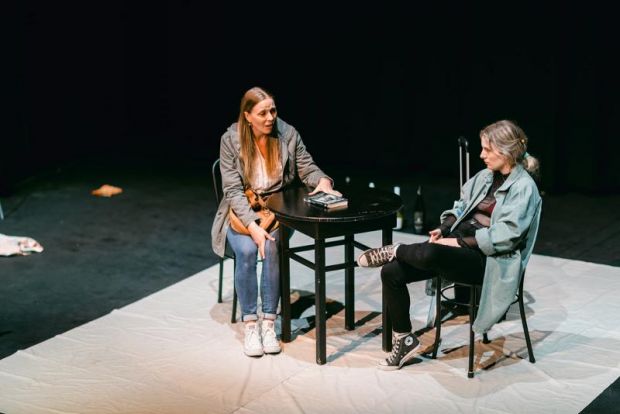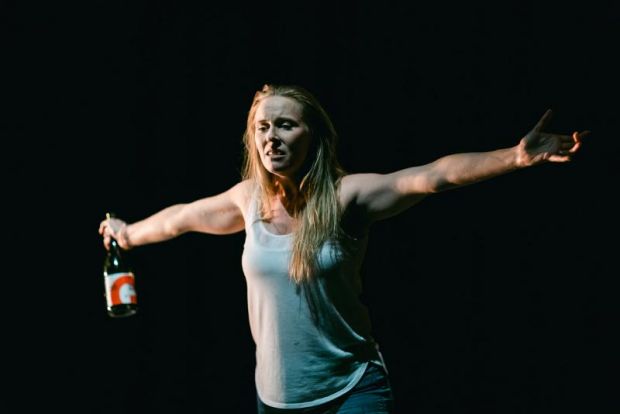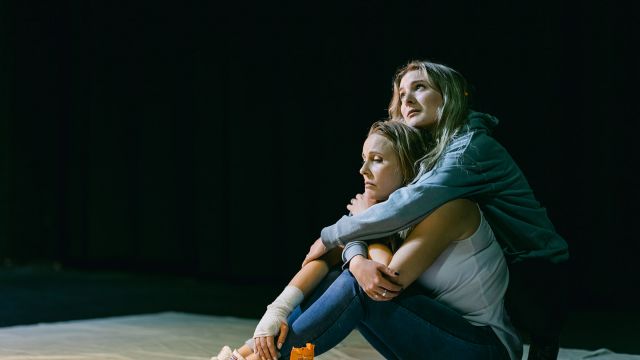Home Thoughts
‘Even West End’s moved away,’ says Clara, venting her frustration when returning to her home city of Adelaide. Her older sister Sarah has never left (‘weekends in Victor don’t count’), her simmering acceptance of what she is, and has, finally boiling over. For both sisters, this story is about their choices, how they see themselves after they’ve made them, and what to do next.
Home Thoughts is a new play from James Watson, an Adelaide local, who is clearly writing from his own experiences of moving away to another place, then coming back. It’s a frustrated love letter to the city, its idiosyncrasies, being that what drives you away, are also what brings you home again. The specific commentaries on the city are well worn tropes, but still draw a knowing chuckle from the audience.

Ren Williams is great as Clara, the younger sister who went to Melbourne to find herself, to become an artist. She embodies the bitterness and disappointment (mostly in herself) at coming home because she’s not yet ‘successful’. She grasps at the past – old haunts, an ex-boyfriend – but realises the changes between her history and now.
Krystal Cave is the struggling older sister, trying to work out how despite doing ‘all the right things’ in marrying and getting a steady job, she isn’t happy. Becoming aware of her apparently banal life induces an extreme reaction – perhaps too much so, making the incident more scandalous than a bored woman looking for excitement. Cave is better at the subtleties in realising consequences and brings humanity in explaining her bad choices.

Playwright Watson also directs, and aside from a critical scene where the sisters talk over each other to a point you can’t understand either, he steers his two actors well as the two sisters, but also each playing an additional minor character that bumps the story along. Reggie Parker’s sound design is excellent – establishing the scene and building atmosphere with admirable simplicity. Designer Ruby Jenkins maintains the subtlety in Williams and Cave’s costumes, and her set is necessarily sparse (the theatre hosts three different shows a night).
There are many connections drawn to James Joyce’s first novel, A Portrait of the Artist as a Young Man. Besides being the study of teacher Sarah’s Year 12s, there are themes of going away from home, yet not losing its connection. Watson adopts Joyce’s ‘stream of consciousness’ style, used effectively by Williams and Cave (for the first half of the play, at least); and the gift Clara brings home to Sarah is a bluntly literal self-portrait, that Clara does not like. These individual allusions are clever but aren’t well drawn together.

This is a solid effort from Watson and his team in trying to explore the challenges we set ourselves to meet our own expectations. It doesn’t quite have the surprise or the variance of energy to keep the narrative fresh to the end, but it’s successful in asking the questions about our origins, and why we think we can’t find what we need there.
Mark Wickett
Subscribe to our E-Newsletter, buy our latest print edition or find a Performing Arts book at Book Nook.

